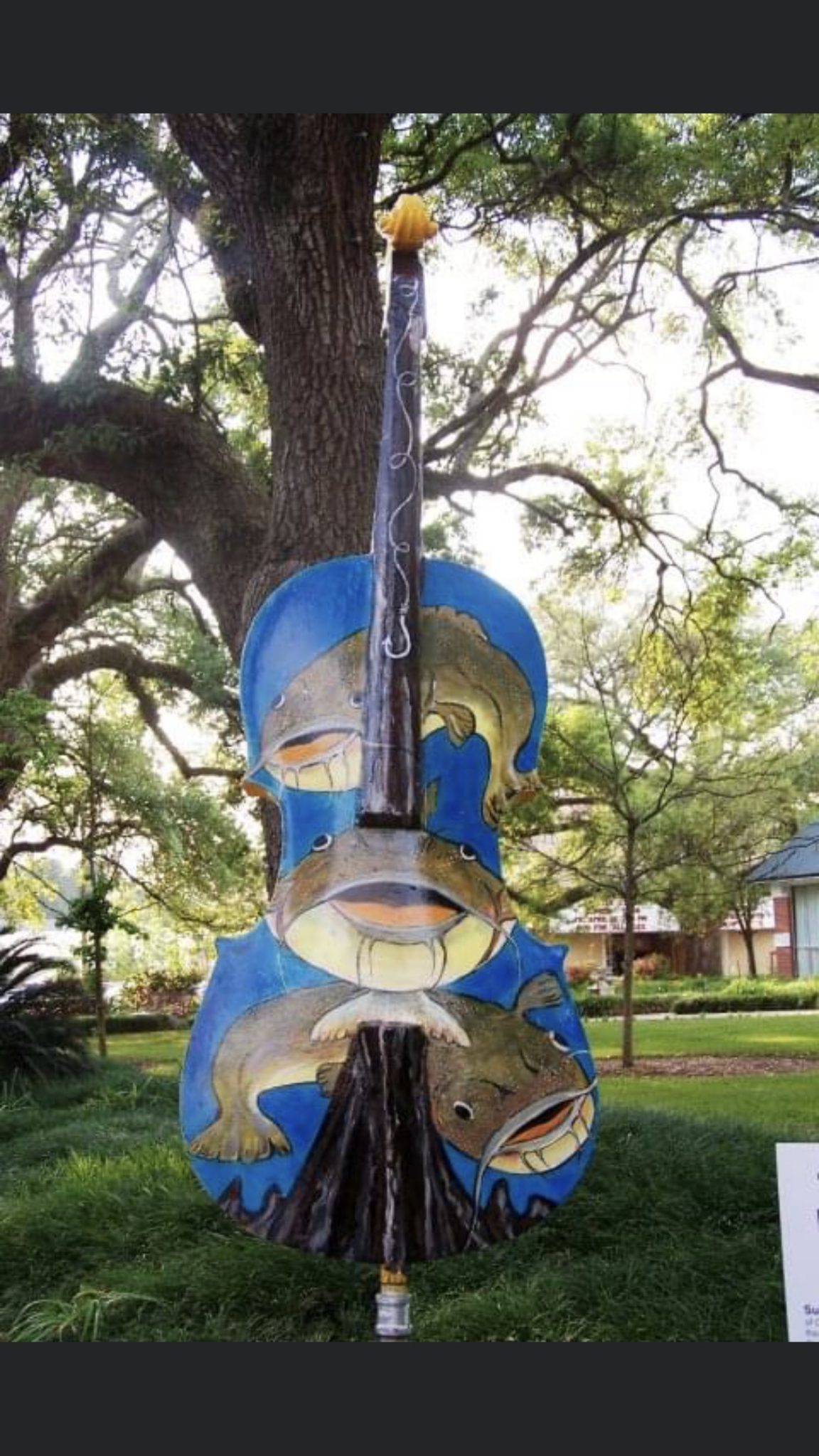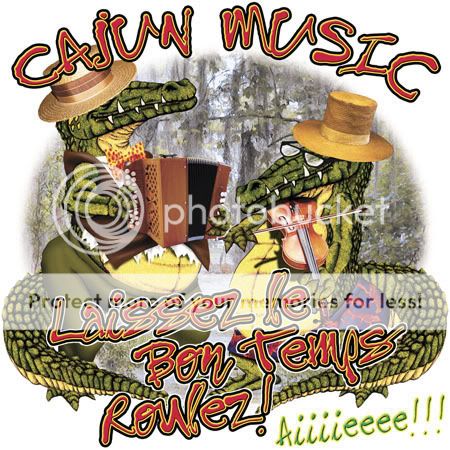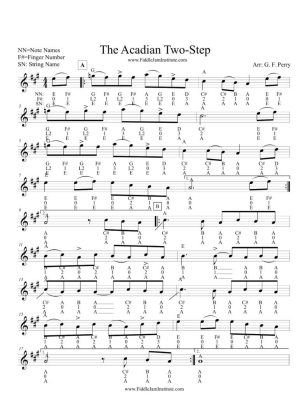Welcome to our forum. A Message To Our New and Prospective Members . Check out our Forum Rules. Lets keep this forum an enjoyable place to visit.
Currently working on errors from the latest (SimplePress) forum update. Many issues have been resoled and others are being worked on. Thank you for your patience.
 Topic RSS
Topic RSS



 (9 votes)
(9 votes) Regulars
 Offline
Offline






Regulars
 Offline
Offline








@Ripton -
Yep, and Emeril also says "Kick it up a notch!" - and they do!
I posted a few of Mitch Reed's tutorials here. I have really enjoyed several of Mitch's workshops at the last 2 Fiddle Hell Festivals.
Cross Tuning on the Fiddle Thread
And, you'll find similarities in Acadian music of Canada - which I'm sure trickles down around our North Eastern States. I have also had the pleasure of taking a few workshops with Lisa Ornstein, too.
Some tunes in this thread.
French Canadian Fiddle Tunes Thread
Did you catch anyone playing any 'Fiddle Sticks'?
I received the "Ye Yaille Chere, Traditional Cajun Dance Music" book for Christmas (along with a few other Fiddle books) - it's HUGE with a zillion tunes & some great history, but I haven't had a chance to really dig into it, yet.
Regulars
 Offline
Offline








@JohnG -
Thanks for pointing that out!
But, I need help figuring out how to keep all this together in the Genres, cause I've got Acadian/Cajun music scattered in 'French Canadian', 'Country', maybe some in 'French', 'Québécois' and a few other places. 🥴
I love Mitch Reed's stories & music. He grew up in Louisiana but moved up to Maine a few years back - where there is also a large Acadian presence.
This group, "Cajun Bouexi Band", is French - in France, see my dilemma?
"Les Haricots Sont Pas Salés" is a very iconic Acadian/Cajun tune... or, was it possibly French in origin? (lol)
Maybe this is the best place to post this video - "Michael Doucet talks Cajun fiddle with Chris Haigh"!
Time to start thinking about Mardi Gras music!
Regulars
 Offline
Offline








@Ripton -
You can play this on Viola (nothing on the E string, but in Treble Clef) - it's a version of notation and lyrics for, "La danse de Mardi Gras", if you want to dive in. I've posted videos of this elsewhere (see my 1st post) and you can find other versions to hear/watch on YouTube.
https://www.bethsnotesplus.com.....-gras.html
AND... here's "The Acadian Two-Step", from FiddleJamInstitute.com - but, some of this should be transcribed down an octave for Viola.
Regulars
 Offline
Offline






Hmmm, didn't think of the Acadian connection. Very interesting. I am in a quandary now. Move ahead with cajun or move a little closer to home and go Acadian. Oh so many styles, so little time. This all relates to my Campfire quest and playing in the great north woods of Maine at a gathering scheduled for the summer of 2023
Regulars
 Offline
Offline








@Ripton -
Sorry, I was actually trying to point out that I found some of the exact same tunes, or similar, in Cajun and Acadian repertoire... even in French and Québécois. So, maybe no quandary - just a larger pool of tunes to choose 'that perfect one' from. 😊
...just something to keep in mind if you are considering books.
The great thing is, plenty of fairly easy music to try - this is just an example.
If you need sheet music transcribed to Alto Clef, maybe @JohnG can help you (I learn mainly by ear).
- Emily
Regulars
 Offline
Offline








Regulars
 Offline
Offline








This might me a good place to show some archival footage - 3 of the great Creole musicians that Mitch Reed always refers to in his tutorials.
"Canray Fontenot" & Alphonse "Bois Sec" Ardoin, performing "Bonsoir Moreau" - (1966) Newport Folk Festival, Newport, R.I.
"Dennis McGee" visits "Bois Sec" Ardoin - playing "Petite ou la Grosse".
This is a GREAT little documentary about Cajun Culture & the musical tradition - "Cajun Country: Alan Lomax".
You can sample parts of a few more tunes here, by Alphonse “Bois Sec” Ardoin & Canray Fontenot – from their album, "La Musique Creole"! Think my favorite is
Alphonse "Bois Sec" Ardoin& Canray Fontenot - La Musique Creole

- Emily
Regulars
 Offline
Offline









@JohnG -
Thank you! 👍🏼
Lots of times I over-think things. 🙄
- Emily
Opelousas Fiddle Mania Public Art Project, Louisiana (2010).
Regulars
 Offline
Offline






Regulars
 Offline
Offline








I've read that Cajuns are VERY particular about making a distinction between 'Cajun' and 'Zydeco' music - then there's also 'Creole' Folk music, but I'm having a terrible time telling the difference!
Excerpts from Wikipedia:
Creole folk songs originated on the plantations of the French and Spanish colonists of Louisiana. The music characteristics embody African-derived syncopated rhythms, the habanera accent of Spain, and the quadrille of France.
Zydeco music is typically played in an uptempo, syncopated manner with a strong rhythmic core, and often incorporates elements of blues, rock and roll, soul music, R&B, Afro-Caribbean, Cajun, and early Creole music. Zydeco music is centered around the accordion, which leads the rest of the band, and a specialized washboard, called a vest frottoir, as a prominent percussive instrument. Other common instruments in zydeco are the electric guitar, bass, keyboard, and drum set. If there are accompanying lyrics, they are typically sung in English or French. Many zydeco performers create original zydeco compositions, though it is also common for musicians to adapt blues standards, R&B hits, and traditional Cajun tunes into the zydeco style.
Cajun music (wikipedia) -
Originally, musicians and singers performed at house dance parties known as bals de maison. However Cajun music, born from ballads, later transformed to dance music—played with or without words. The music was essential for small get-togethers on the front porch, bals de maison, and public dances in dance halls called fais do-dos.
...involving only a few instruments such as the Cajun accordion, fiddle, and triangle. This form holds firm to a basic rhythm with staccato style notes, including many fiddle double stops. Each fiddle solo is composed of a major scale riff, repeated between verses. This form has existed since the early 1900s and the waltz and two-step are the most common dances of this Cajun music genre.
Cajun swing relies significantly on the fiddle and piano with a swinging tempo. Bands in the 1940s began using the steel guitar, an instrument also found in Cajun dancehall music. Dances such as "the jig" are common in this genre of Cajun music.
Typically in Dancehall Cajun performances the melody is played by the accordion followed by a bridge, a vocal verse, leading lines by the steel guitar, fiddle, and accordion followed finally by a bridge. This is followed by the next vocal verse, and so on.
...the Cajun "renaissance" also incorporates more modern elements of folk, blues, jazz and swamp pop, and bluegrass styles. The fiddle players relax, involving a more legato feel to the solos. The quick fiddle action and double stops are missing, replaced by dominant blues chords and jazz slides.
Contemporary Cajun music is influenced by rock, R&B, blues, soul, and zydeco music.
Cajun dance: a Cajun one step, also called a Cajun Jig, a Cajun two step, also called a Cajun Jitterbug, and a Cajun Waltz. In mild contrast, zydeco dancing is a syncopated two-step or jitterbug. A Cajun dancer will cover the dance floor while the zydeco dancer will primarily dance in a smaller area.
Regulars
 Offline
Offline








Here are some enlightening excerpts from the wonderful new book I'm reading, "Yé Yaille, Chére", Raymond Francois says:
Usually a song (Cajun) has a tune of eight (or nine) measures and a turn of eight (or nine) measures. [some have a rest between the tune & turn = the 9th measure] The turn is an extended bridge providing a contrast for the tune. Some turns, such as the one for "Fi Fi Poncho", have double cadence. The turn is rarely sung, but, just like all rules, this one has some exceptions, particularly among the older songs, like those Dennis McGee plays.
...I think the "right" kind of improvisations are easier when playing with the diatonic accordion and the violin tuned down one step below standard, but this isn't necessary. Most good musicians can play both ways.
Chord changes are another essential feature of Cajun music. A Cajun musician has freedom to improvise, especially when he takes the lead, but he must follow the chord structure and general flow of the melody if he intends to play in the traditional style.
The term "Zydeco" is a phonetic spelling of les haricots and comes from a very popular song in this musical style, "Les Haricots Est Pas Salés". It is a distinctive style of music with insistent, repetitive rhythms which are probably African in origin and, although it does use chord changes, there is a tendency for a single chord to predominate.
...[Predominantly] accordion and drums, but many Zydeco bands also include wind instruments, guitar, and frottoir (washboard).
One reason that Zydeco and traditional Cajun music are so often confused is probably that their repertoires overlap. [playing Cajun music in Zydeco style and Zydeco music in Cajun style]
Regulars
 Offline
Offline








Regulars
 Offline
Offline






Regulars
 Offline
Offline








@Ripton -
That's great news!
I'm having trouble posting a 30 minute video of Cedric Watson - with some great examples of his playing.
It's the "2020 AFF Sandia Stage 1PM Cedric Watson" on YouTube.
I think there's some garbage linked in the full video title that prevents the link being allowed here, but there's no trouble viewing it at YouTube - just don't try to share it.
...guess that's why I can't find if I posted it anywhere else on the forum. (lol)
This is my favorite reference for "La danse du Mardi gras" - from the French Canadian thread (same as "La Danse de Mardi Gras")!
- Emily
Regulars
 Offline
Offline








Mitch Reed has great tutorials - he also offers Skype, Zoom, or Face Time private lessons (he lives in Maine, now)!
Here's a brief "Cajun and Creole Fiddle 101".
Here's his Documentary on "Creole" music!
More Mitch Reed tutorial videos here:
https://www.youtube.com/c/Mitc.....ons/videos
Chris Haigh has 7 good Cajun tutorials you can view here:
https://www.youtube.com/c/TheF...../playlists
"Peakfiddler" has a playlist of Cajun & Zydeco tutorials here:
This FiddleHed Cajun tutorial will link you to the whole FiddleHed Cajun Playlist.
I think Michael Doucet might have some really great Cajun tutorials, but video quality would have to be better than the one sample I saw on YouTube. You check out more info here:

Enough to get EVERYONE started?
- Emily
Regulars
 Offline
Offline








@wtw -
I read that All Saints' Day is an important Holiday in France.
Have you heard this Waltz?
I have totally fallen in love with this Cajun Waltz - so, on 'THE LIST' goes "La Toussaint" (aka. All Saints' Day)!
Learn this by ear... haven't found sheet music for this, yet.
Also, I found a few FULL ALBUMS on YouTube, worth listening to - this is one. Trying something a little different - just click on the time link for each tune. "Dennis McGee - The Complete Early Recordings" (1929-1930 Cajun Fiddle)!
- 01 -(00:00:08)- Mon Chère Bébé Créole
- 02 -(00:02:56)- Madame Young
- 03 -(00:06:01)- Two-Step De La Ville Platte
- 04 -(00:08:55)- Allons à Tassone
- 05 -(00:11:37)- Blues De Texas
- 06 -(00:14:32)- Happy One Step
- 07 -(00:17:39)- La Valse à Pop
- 08 -(00:20:32)- La Valse De Vacher
- 09 -(00:23:09)- One Step De Mamou
- 10 -(00:25:53)- Courville And McGee Waltz
- 11 -(00:29:00)- La Danse Carrée
- 12 -(00:32:08)- La Valse Pénitentiaire
- 13 -(00:34:50)- Lanse Des Belaires
- 14 -(00:37:43)- Jeunes Gens De La Campagne
- 15 -(00:40:27)- Vous M'avez Donné Votre Parole
- 16 -(00:43:32)- One Step De Chupic
- 17 -(00:46:13)- Two-Step De Grand Marais
- 18 -(00:49:23)- Myself
- 19 -(00:52:15)- La Valse De Lance Au Paille
- 20 -(00:55:19)- La Valse Des Reids
- 21 -(00:58:10)- Reel Cajun
- 22 -(01:01:16)- Disez Goodbye à Votre Mère
- 23 -(01:03:59)- Adieu, Rosa
- 24 -(01:06:41)- La Valse De Rosalie
- 25 -(01:09:34)- La Valse De La Puit D'Huile
- 26 -(01:12:19)- One Step Des McGees
1 Guest(s)


 Log In
Log In Register
Register


















